
Self
Biographic documentary about the Portuguese actress, Isabel de Castro.

Director

Ivo and Tomás, two volunteered vagabonds who feed their souls of ways and great winds. From time to time they make a stop, renting their arms, the necessary time to be able to, provisions made, get on the road again. Once, with the sun at its peak and a burning heat, the desert that they are crossing seems to be endless. They run out of water… in the end of the day, without any strength left, they let themselves fall near to a dried bush. Ivo stares at the moon rising, as is saying farewell and whispering verses of a poem of a lawyer they’ve met before. It is then that he sees a far light. They set their way to that house…

Sogra de Ângela
Francisco just got out of prison after a six year sentence and is now a free man. He wants to change, and after a few days sleeping in the subway tunnels, and some small jobs, he finally gets a room on a cheap hotel. He changes his looks, gets a job, lives his life.

Avo Vieira
Johnny, aged 20, can't live without Fanfan, his twin sister. There is a very particular intimacy between them. They walk together everywhere, share the same room, the same tastes, the same bike, the same camping tent. But also a conflict principle sets in. Oppressed by his overbearing need, she decides to head for the south of Portugal, the country of their parents. His dreams are shattered; he feels deeply betrayed by his sister. Caught between his father who is preparing to retire to Portugal and his mother who refuses to leave France, he tries to work out his own identity. His passion for rock music gets him involved with his sister's former lover. By following this charismatic leader preaching dubious ideology, he risks losing his "gentle half" forever. Meanwhile in Portugal, she becomes disillusioned. Will they manage to grow up without each other?
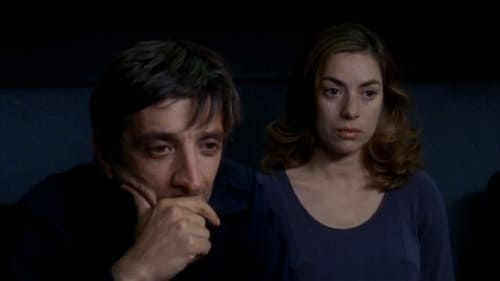
Sra. Ferreira
Based on a the short story "Low Flying Aircraft" by J.G. Ballard and set in a near future where humans are dying breed. Judite and André flee to a semi-abandoned apartment complex to protect their mutant child from certain death.

Alice
"At first everything was relatively simple. I was looking for a boy of African origins, between 16 and 18 years old to incarnate the role of Alberto in the film I had just written. As they were not actors, I asked candidates to tell me a story of their choice. What they gave me was a lot of life, and they did it with such generosity and authenticity that I was the one concerned. Would I be able to find the same strength, the same emotion?" - Inês de Medeiros

Palmira
The relationship between António and Ruth ends unexpectedly when Ruth decides to live with Pedro, António's best friend. António doesn't fight back and lets himself drown. From the woods come Violeta and Gaspar, two strange beings, a mixture of fairies, demons and guardian angels, who help António overcome his depression. With the thunders the two characters return to their domains. And life goes on.

Cândida
Amo-te Teresa tells the forbidden love story of Teresa and Miguel, aged 35 and 15, respectively. Teresa is a doctor and, after a frustrated love life, she decides to abandon Lisbon and returns to her native land. Immediately, a strong attraction forms between Teresa and Miguel, a friend of her oldest son.
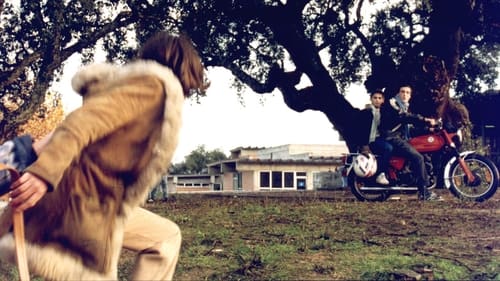
Teresa
Gloria is set against the backdrop of a rural landscape slowly disappearing in modern Portugal. The small border town of Vila de Santiago, once a booming trade center for illegal trafficking, is about to become a ghost town, as a new motorway is to bypass the city and the railway station is being closed. Its stationmaster, Vincente, is preparing to retire. Many young people have moved out, leaving the children to be brought up by the elderly, including thirteen-year-old Glória and her friend Ivan. Glória's life suddenly changes with the arrival of Vincente's younger brother, Mauro, who has just come out of prison and has some old issues to settle. Mauro begins to charge around the station on his motorbike, while Glória's friendship with Ivan is put to test on account of her attraction to older Mauro.

Casca in 'Julius Caesar' Play
Young Jesus is taken on a vacation by his parents (Rita Blanco, Adriano Luz) to a deserted beach resort. They accidentally fall into overnight wealth after Jesus digs in the sand, uncovering a large drug stash. Others characters intersecting here include an alcoholic actress, a philandering banker, a general trafficking in arms, priests who close their church and head north as hitchhikers, politicians who watch an all-girl production of Julius Caesar, and beggars who recite a children's story in a huge heap of trash.

Rosa
Lúcia is an independent woman who lives alone in Lisbon. Her father commits suicide leaving her a message on phone recorder, revealing a letter he wrote. However Lúcia can't find it in her father's house. On that visit she ends up meeting with her mother, a known political activist with whom she has a distant and tense relationship. In hope of finding the letter, Lúcia leaves to the farm where she grew up, on an isolated location. There she reencounters Álvaro, an old childhood companion, who shares a little life time he has left between roses and the piano, and the guardian angel that follows and protects her through nocturnal wanderings.
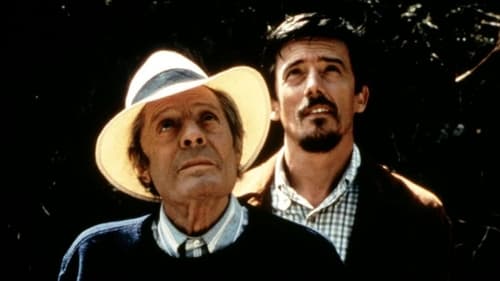
Maria Afonso
Manoel is an aging film director who travels with the film crew through Portugal in search of the origins of Afonso, a famous French actor whose father emigrated from Portugal to France and in process remembers his own youth.

Duchess of Arcos
At the end of the seventeenth century, in Naples, still dominated by the Spaniards, a young pupil, Balthasar,is castrated to preserve the purity and beauty of his voice. The Duchess dies and her son, the Duke of Arcos, takes charge of the inheritance, which includes Balthasar. With the entrance of Maria Loffredo, former lover of the Duke, a triangle is established that unchains tragic consequences to the allegedly callous life of Balthasar.

Nha Caela
Cape Verde, 1964. At the feet of a mighty volcano, the traditional Cape Verdean society is undergoing a steady change. The old land-owning aristocracy is disintegrating. A class of "mulattos" begins to emerge, with a trade-based financial power that threatens the landlords. A new identity arises, a mix of old and new, of African and Portuguese culture, sensual and dynamic. The songs of Cesária Évora follow this inevitable transformation. From the novel by Henrique Teixeira de Sousa.

Mother Antoinette
Pierre, a middle-aged tourist guide, is the victim of a sudden failure : he does not recognize anything about him any longer. He goes back home and in his apartment he finds a mysterious young man who tells him he is here to avenge a young woman who has taken her own life. What share of responsibility does Pierre hold in this situation?

Actriz convidada
The film tells a story of Mariana, a nurse who leaves Lisbon to accompany an immigrant worker in a comatose sleep on his trip home to Cape Verde. The devoted Portuguese nurse took a journey only to find herself lost in abstract drama.

Old Actress
Lisbon, on a winter day in 1994, between six and fourteen o'clock. A forty-year-old woman despairs in the last eight hours preceding the birth of her first child.

Abbedisse
Jan thinks he is Swedish-Danish, but after his mother's death he discovers he was adopted. As his world begins to fall apart, he decides to find his birth parents. The hunt leads him to Portugal - in a taxi - where more surprises await him.

Madre de José
Ana, a former member of the Basque terrorist group ETA who lives in a small village near the Portuguese border working as a veterinarian and sharing her days with her partner Darío and their daughter Amalia, meets José, an attractive man who participated in the dirty anti-terrorist war against ETA criminals who took refuge in France.

Miguel's mother
Miguel (Luis Miguel Cintra) is lucky that his income will only level off if he neglects his business as a financier, and his wife and family will be well supported. Why? Because he has begun hearing noises that no one else hears, noises that bother him a great deal, and that make it impossible for him to bear human society. His wife (Jessica Weiss) is thoroughly put out by this radically changed behavior in her formerly good husband, but though she considers leaving him, she stays by his side. Deep in the mountains, Cecelia (Rita Dias), a devout, pure young cowherd, has been brutally raped by an old man. Her boyfriend (Pedro Hestnes) has killed the rapist, and fled the area. As a result of the rape, Cecelia is pregnant. One day, while driving in the mountains, Miguel gives Cecelia's boyfriend a ride. The two of them chance upon her sitting amid the rocks with her infant baby.

Raquel
In the summer of 1870, Raquel, who owns a farm, and lives secluded in her mansion with an old butler and a handful of servants, feels proud when an odd acquaintance comes by. Adriana and her daughter-in-law, Ermesinda, a very young girl, just happen to be visiting - the second time in 15 years for Adriana, and the first time for the teenager Ermesinda. The meeting seems to be pleasant, and yet, for reasons untold, there is coldness and reserve between Adriana and Raquel. Their ambiguous relationship will be revealed, when by accident old wounds are reopened.

João's mother
A young theater student receives an invitation from his unknown father to go to Angola with him. On the trip, he meets an Angolan student who returns to his country. When he goes to his father's address, he has a big surprise and his life will change ...

Geneviève Largillière
In Brazzaville, in 1944, Alex Emmerich was sentenced to wander the seas by Hélène Latray, the wife of Félix Beauvois, the man Alex loved. In 1962, exiled on Hatray cruises and feeling the coming death, Alex decides to compose for his love a testament: the photographic report of his agony.
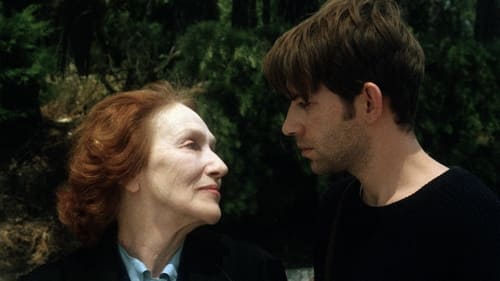
Irmã Luz
Xavier returns to Lisbon after a military stint, determined to lead a meaningful life, only to find his world closing in on him.

The Woman
Nino, tough but sickly, and his older brother Vicente live in the country with their father. After their father disappears ― we’re never sure why ― murder is suggested. Vicente brings his girlfriend to the house, and a different kind of family is established as the three youngsters grow fiercely protective of each other. But their uncle grows suspicious about the fate of the missing father and forcibly kidnaps Nino, taking him away to the city and leaving Vicente to locate him there.

Miranda
Some time ago Gerardo knew another man of the same age called Berardo. When he said the name, Berardo expressed his oppinion violently, saying that the «G» was owed him and that Gerardo, since he owned it had somehow stolen something from him. Berardo then tries to get something back which soon goes beyond a baptismal name. Gerardo whitnesses this strange spectacle of himself as a place where, after Berardo, other people try to get something back, something that escapes them about themselves. Three women - Adália, Miranda and Virgínia - are whitnesses to this game

Teresa Cremalheira
A film adaptation of the Charles Dickens novel "Hard Times" set in a Portuguese industrial town of the 1980s.

Ti Anica
Based on the work by Fernando Pessoa - a "message" about the destinies of Portugal - not just in isolation but looking at them as precursors and announcers of the fate of the entire planet.
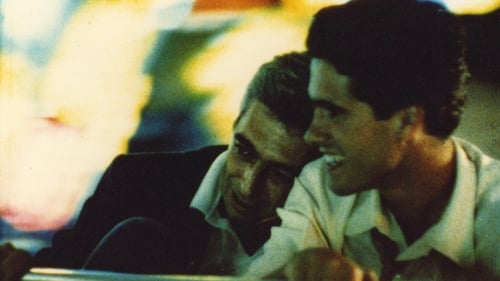
Maria
12-year-old Miguel is punished because he has not done his homework properly: he must stay at his aunt's inn for holidays. First bored, then a friendship begins between him and other inn's regular holiday-makers, like maid Luisa or fisherman João. But doctor Fernando's arrival is going to overwhelm the place's peaceful life and to change Miguel's mind.

Isabel, Rita's Mother
A young woman, working as sales-girl at a shopping center's music shop, wants someone with whom to share her secrets. A distant mother separating from her father, an aunt who emigrated to France, and her pre-adolescent sister, can't do - neither the boyfriend. Such a confident arrives unexpectedly - but then there are three of them, one too much. One leaves, but then another young man arrives, and there are three again. One must go. A sad young adult love story, told in the first person, singular - and ultimately alone, under the rain.

Housekeeper
This visually striking drama is taken from the classic Japanese novel Tales Of Genji by Marasaki Shikibu. Set in modern Portugal, Joao (Luis Miguel Cintra) is a left-wing political leader and ladies man with a bright future. His ex-wife Isabel (Manuela de Freitas) both loves and hates him as Joao plays on her wavering emotional state. He is sent to Italy to retrieve wayward family member Antonia (Caroline Chaniolleau), the beautiful young woman with a terrorist boyfriend. Joao is forced to recognize his feelings as the political and amorous climate changes around him.

Piedade
In Africa, during the colonial war, a patrol is lost in the bush and a soldier dies in operation. Twelve years later, in Portugal, the soldier family meets in peace.

Ambulatory history, freely inspired by Georg Büchner's biography (1813-37) and the reasons that led him first to political intervention and then to strict isolation. With students of unidentified present time (1968? 1970?), the themes developed, in Büchner, are triggered by the publication of "The Messenger of Hesse", a pamphlet addressed to the peasants, urging them to revolt. Their misunderstanding, as well as the repression of the young revolutionaries, leads Büchner to a particularly skeptical and painful attitude...

Grandmother
A young man from a high-bourgeois family, Henrique receives mysterious phone calls from a woman at the barracks where he is serving in the military, which attracts him to meetings without consequences.

Maria de Jesus
In a unique approach to what amounts to four pseudo-morality plays, director Monique Rutler has a street entertainer with hand puppets summarize the characters and idea of each story. The first sketch is about a young man who shines shoes for a living, and tries to keep up a relationship with two women while convincing each she is his only true love. The next story is about a man who beats up his wife when he is drunk, and sells furs for a living. One day, as she is riding in the back of his truck with the furs, he hits a bad patch and she and some furs fall out. The question is, will the woman be enterprising and leave the jerk - or not? The third tale concerns a woman looking into how much control a prostitute has over her clients, and to really find out, she becomes a prostitute herself for awhile - leading to some quite unexpected situations. The last segment handles the uglier side of the life styles of the rich and famous.

Marinheiro: 2.º Veladora
The film was to be a documentary, but evolved during production to a fictional film. It nevertheless adheres strictly to the poems and letters exchanged by two of the most outstanding names of the Modernist Movement, Fernando Pessoa (in Lisbon) and Mário de Sá-Carneiro (in Paris). Their endless conversation was dramatically and suddenly terminated.

Tiaga
Tiaga tells the story of a poor old woman, played by Isabel de Castro, to whom a good wizard offers the gift of youth to reward the help she provided him. A version of “Faust” seen through the female eye and featuring some unusual moments, such as a shot of a black goat while José Afonso sings, as well as nightmare sequences in which Tiaga is chased by the devil.

The film of a performance of a selection of cabaret comedy sketches by Karl Valentin, with Jorge Silva Melo as stage director. The show was a complete success and has become almost legendary. Solveig Nordlund shot it, adding some more sketches that weren’t included on the show.

The woman
A woman arrives home, apparently coming from her job, and sets out about house chores and placing every object around her with extreme care. The only company she has is the radio, tuned to a station of popular music hits that the audience can ask for by telephone. There is a single hint that she may have breast cancer. Then, she sets the table for a large dinner - for one - including a champagne bottle. She commits suicide by pills overdose, before she utters a word.

D. Lucas' mother
The disastrous attempts of D. Lucas Telmo Midões to achieve in 1981 the independence of the Berlengas islands - lost eight centuries ago, during the conquests of D. Afonso Henriques.

Older Daughter
A portrait of the everyday life of a typical middle-class family in parallel with the fall of the "Estado Novo", the 48-year dictatorship led by Salazar. The daughters' conflicts and frustrations with their parents, their grandmother and their maid find an obvious echo in the country's collective events. The Carnation Revolution is about to explode.

Helena
A famous singer conducts two relationships at once, with a businesswoman and her secretary. He marries the woman, has children from both, and all goes well for him until one fateful day, when his two sons come to know that he is parent of both, at school.

Clarisse
Reflections on life and death through the eyes of a Medical Doctor, researcher on blood diseases, under the anguish of consulting a terminally ill young woman.

Mira
A Marialist nobleman falls in love with a fado singer, who puts an end to the ephemeral relationship, accepting the love of a teenager, recently arrived from Africa.
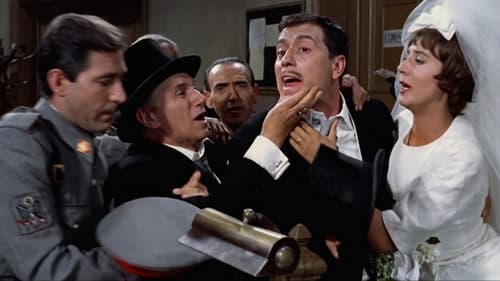
Lola
Lola and Maria are two Spanish young ladies engaged to Franz and Pepe, all so eager to spend their honeymoon that the moment seems never to come, as all sorts of problems pave their way.

Clara
The characteristic loves of Margarida and Clara, the distinct moral of Pedro and Daniel, the goodness of João Semana, and the dissidents, sensibility, tenderness, rituals and landscape involvement of the Minho.

A fussy insurance inspector (Varela Silva) has the mission to investigate why, in three years, 325 employees have passed through a farm shop. In his police demand, he speaks with the maid, the girl Elvira (Fernanda Borsatti) and with the store's boss, Mr. Silva (Henrique Santos). His curiosity will only be satisfied with the arrival of Dona Berta (Elvira Velez), with her "nausea" daughter (Isabel de Castro) and her "unbearable" granddaughter (Guida Maria)

Madalena
Manuel and Pedro have different approaches to love. Manuel suffers a disgust that makes him sullen, and enters the priesthood. Pedro keeps on in his carefree ways, and commits a robbery. Manuel knows the robber is Pedro, but he learned it in Catholic confession. To keep his vows as a priest, he is prepared to be arrested.

Madre de Nuri

Ana Méndez

Ana

Mariona

Maria
Spanish Zorro adaptation

Elena Montes
On her journey to a provincial capital, Elena falls for the director of the Company of Zarzuela and leaves with him, despite opposition from his father. But the guilt of having abandoned him pursues her constantly to the point to shake their relationship.

Teresa

Luisa
Hector Pelegrin, an unsuccessful insurance agent is admitted to the prestigious school Ferran as a gym teacher. The only problem is that he completely lacks the necessary skills for the job. He organizes a game between the football team at his school and another center, a historic rival, resulting in a surprise full of humorous criticism to our society. Pelegrin tries to convince everyone that football is just a sport

Isabel
Two boys are sent to reform school under the guidance of Father Fernando, a young and dedicated priest.
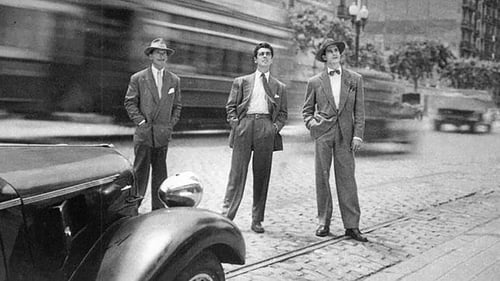
A young policemen witnesses a bank robbery which will become his first case. To catch the thieves he will infiltrate himself as one of the gang members. At first it works, but it won't be so easy afterwards.











